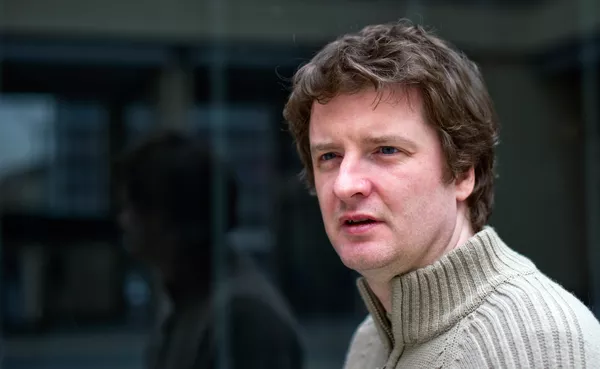At first, I thought the price tag was a mistake; that some inattentive shop assistant in the downtown Moscow bookstore had added a couple of extra zeros and no one had noticed. After all, there was no way 500,000 rubles ($15,000) could be right for a collection of twenty books of children’s stories. Even if they were bound in what was described as “high-quality” leather. But the error was mine – the price was genuine.
“Quite a few people buy the collection,” a shop assistant told me. “Not that often, but frequently enough, given the price.” This was no elite bookshop, I should add, Just an ordinary store in the center of the city. Perhaps noting my skepticism, the girl behind the counter pulled out a thick file where the recent purchases were recorded. As it turned out, someone had laid out the asking price just three days before my visit.
“That guy spent 1,300,000 rubles ($39,000) actually,” the shop assistant went on, a strange smile that was a mixture of wonder and pity crossing her face. “He said he’d just bought his fourth house, and he needed to fill up his new library.”
Of course, she wouldn’t let me touch the books, but was good enough to carefully hold one open for me, so I could inspect the pages. They were, as she had explained, made of simple paper. “It’s just the leather that is so expensive,” she said.
“The rich are a breed of their own,” she said, smiling.
I thought about those books for the next few days. Did the guy give them to his children to read? And, if so, did they even realize how valuable they were? Or did their father lock them away in the bookcases of his new library? Was he even, I suddenly wondered, a father?
But most of all, I thought about the rich. About people who could – and, most importantly, would – spend what is around the average yearly salary for Russia on twenty books. How wealthy would you have to be to do that? And how did the shop assistant feel when he splashed out a sum she would have to labor five days a week for a year to earn?
Of course, as the U.S. Occupy activists frequently remind us, Russia is not the only country in the world where there are huge discrepancies between the earnings of the rich and the poor. But for a former Soviet republic, such ostentatious displays of wealth are perhaps all the more shocking. And the wealth, for the chosen few, has been quick in coming – in 1999-2000, Forbes listed not a single dollar billionaire in Russia, but by 2011 there were already over 70. And Moscow is now the world capital for billionaires, ahead of New York in second place.
And the gap between the rich and the poor has been widening ever year - the difference in income between the bottom 10 percent of the population and the top 10 percent grew by nearly one-fifth between 2000 and 2010.
“Money rules in Russia,” a super wealthy businessman acquaintance told me not so long ago. “If you have cash, you can do anything. Your every desire will be fulfilled and the law is no obstacle to your wishes.”
Oddly though, this disparity in wealth isn’t one of the major reasons for the recent anti-Putin protests to have hit Russia. As an article in the opposition Novaya Gazeta newspaper pointed out recently, as a general rule, the poorer and more deprived the region, the greater the support for the former KGB officer. The protests have mainly centered around Moscow, where, for example, the average salary of a teacher can be up to four or five times higher than in Russia’s forgotten and bleak provincial towns. This is not a revolt of the hungry, but an uprising of the well-fed and well-off. As the article pointed out, a logical analysis of the statistics could well persuade the Kremlin that a poor and badly-educated population is entirely to its advantage. That is, of course, if the powers-that-be haven’t already come to that conclusion.
The views expressed in this article are the author's and do not necessarily represent those of RIA Novosti.
*
From lurid tales of oligarch excess to scare stories about Moscow’s stranglehold on Europe’s energy supplies, the land that gave us Roman Abramovich and Vladimir Putin is very rarely out of the news. But there is much more to modern Russia than billionaire tycoons and political conspiracy. Marc Bennetts’ weekly column, Deeper Than Oil, goes beyond the headlines to explore the hidden sides of the world’s largest, and often strangest, country.
Marc Bennetts is a journalist who has written about Russian spies, Chechen football and Soviet psychics for a number of UK newspapers, including The Guardian and The Times. He is also the author of Football Dynamo: Modern Russia and the People’s Game (Virgin Books).
Deeper Than Oil: A Brief Guide to Russian and Soviet Serial Killers
Deeper Than Oil: Russia’s Euro Joy
Deeper Than Oil: Under The Gaze of a Kazakh Poet
Deeper Than Oil: An Early Morning Elektrichka
Deeper Than Oil: Priests, the Lot of Them
Deeper Than Oil: The Sad Tale of Dmitry Butakov
Deeper Than Oil: Reflections on Russia over a Pasty
Deeper Than Oil: Russia’s scandal-loving Communists
Deeper Than Oil: Russia’s Tales of Terror
Deeper Than Oil: A Short Guide to Russian and Soviet Cartoons

